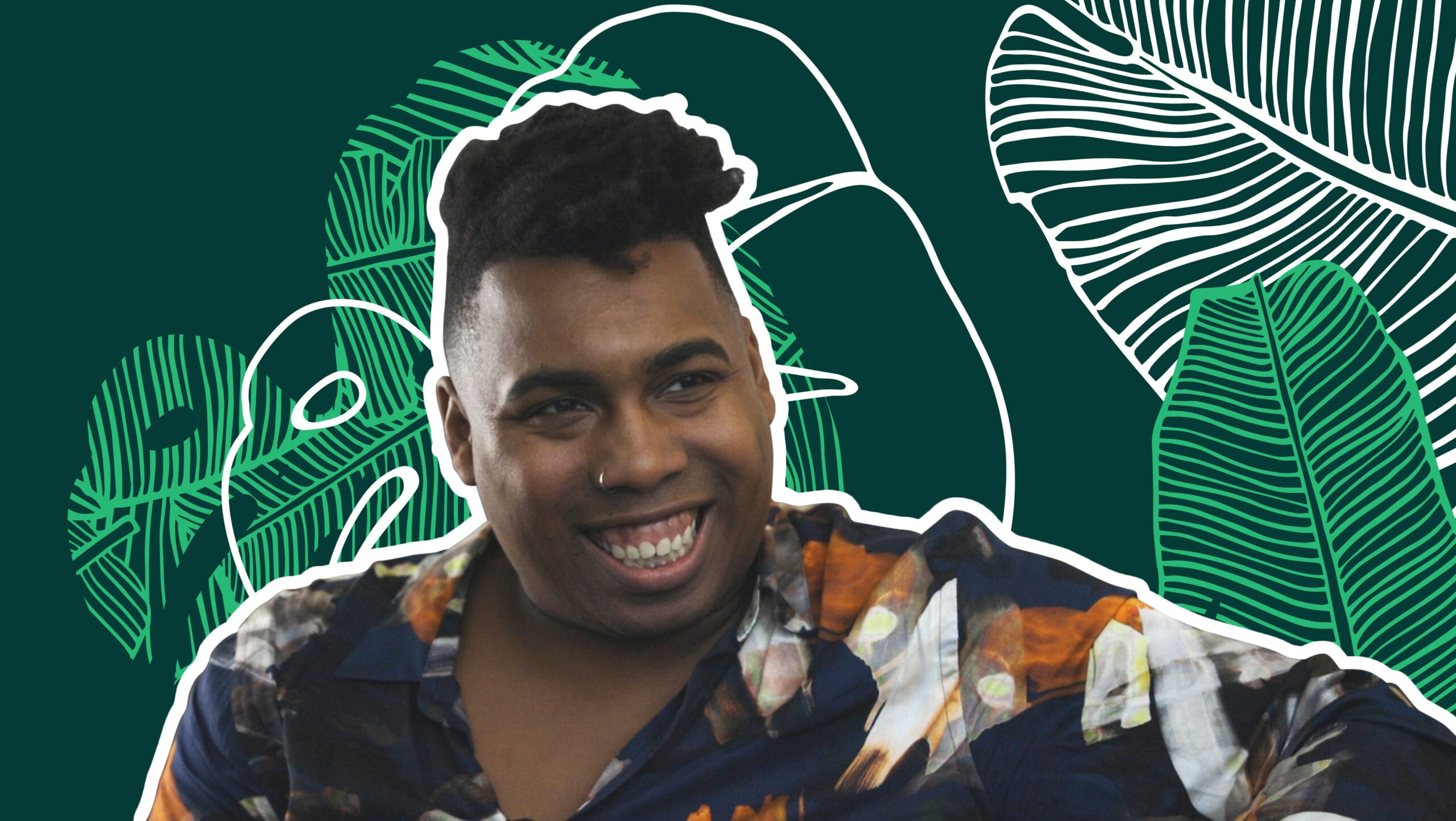What does it mean to grow up Black and gay in the South today? Saeed Jones’ coming memoir How We Fight For Our Lives explores this in harrowing detail, as he fights to make space for himself and his own hopes within his family, society and country. Blending poetry and prose, Jones tackles questions of race and gender—“Being a Black gay boy is a death wish”—to violence and depression: “I buried myself in the bodies of other men so I could feel something other than the depression that was rolling in like a fog bank”—and even love and grief: “People don’t just happen. We sacrifice former versions of ourselves. We sacrifice the people who dared to raise us.”
Xtra’s senior editor Eternity Martis sat down with Jones to talk about the memoir, his writing process, the importance of friendship, and how people of colour and LGBTQ2 folks can fight for their lives in the Trump era. Here are a few takeaways from our on-camera interview.
On How We Fight For Our Lives being released
“I knew that I had captured what I had learned about how I struggled into who I am. So to me, the book was already a success [before even being released]. And now it’s out and with readers, and it becomes a different kind of experience. And now I get to hear from you, and that’s wonderful.”
On whether the publishing industry has become more inclusive of queer and Black writers
“The reason not much has changed is because an outsized portion of the conversation about diversity and representation is on writers…We need more editors. We need black people in sales and marketing. We need queer people. Publishing is a lot more straight than I realized initially. It’s the behind the scenes aspect where the power is: Who are the publishers? Who’s the head of sales? Who’s the head of marketing? Who’s coming up with these book covers—cutting off the faces of Black people, lightning character’s skin. That’s not the writers making those decisions, you know.”
On his family reading How We Fight For Our Lives
“They were patient and trusted me, which I really appreciate, because I’m not going to pull punches. I never pull punches in my writing for other people or myself…I sent them galleys of the book because I wanted them to at least get to read it before strangers do. But I sent a note saying, ‘you don’t have to read the middle,’ basically, because I was like the middle of in college. But they all read the whole book and my grandma was like, ‘the middle was kinda raunchy’ and we laughed.”
On “trauma porn” in personal writing
“I try to use a lot of narrative strategies [in the memoir] to make it clear that I wasn’t just trying to set myself on fire for readers’ emotional entertainment or education. I’m not going to sacrifice my life. That’s a disrespect to me. That’s a disrespect to the woman who raised me, my mother. But I’m going to show you what I’ve learned about my life so that you can learn about your own. And that, I think is a more empowered position.”
On how we fight for our lives in the Trump era
“Study history. If you’re going to fight for your life, you’ve got to understand how other people fought. Studying American history, I can understand where why things feel so precarious now, because I’ve studied the civil war, reconstruction and then Jim Crow. All of these gains were made for former enslaved people in the United States and then within a generation, it was all taken back. And it’s worse and it’s meaner and more means.
The thing about white supremacy—and homophobia, misogyny and misogynoir— is that it’s spiteful. It doesn’t just take those gains sitting down—it comes back. White supremacy defends itself, and has many tools because it’s in weapons it can use. It’s woven into everywhere, exhausting us, gaslighting us, co-opting us, So, I think it’s important for us to understand that broader context in which we live that began certainly before Trump, before any person in this room was born.”
On finding your people
“Find your people. You can’t be alone out here. Oh, my gosh—the only thing scarier than a queer person of colour trying to navigate life in 2019 is them doing it on their own. Do you have art and entertainment that makes you feel good? Can you sit and watch Pose and kiki? Do you have someone you can call? If you go missing tonight, is someone going to miss you? If you don’t show up or you stop responding to text messages, is someone going to come looking for you? You need to know that. You need to find those people. That’s essential. But you see me at different points in the books, I just didn’t understand that. And it almost cost me my life.”
On weaponizing his writing for change
“I love to joke and smile, but we’re going to go there, and we’re going to stay there because people are living at this this this perilous border between having their humanity valued and having their humanity constantly disregarded and disrespected. So many people are just there and I need to be there, at least intellectually and creatively. So, yeah, I think for me, the weapon with time became, oh, I can use my art, I can use my craft to do that. Isn’t that better than literally trying to use my own body to do so?”


 Why you can trust Xtra
Why you can trust Xtra


